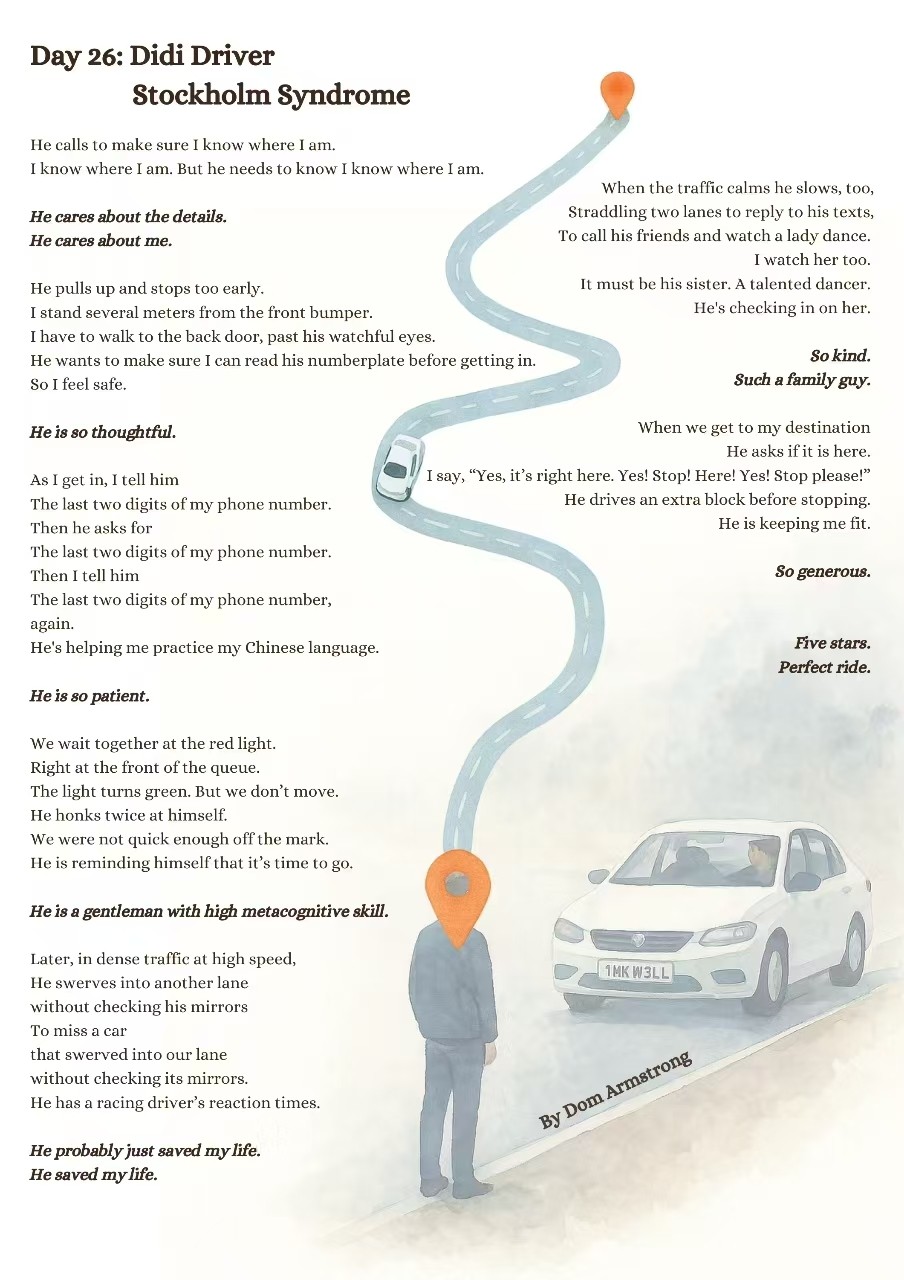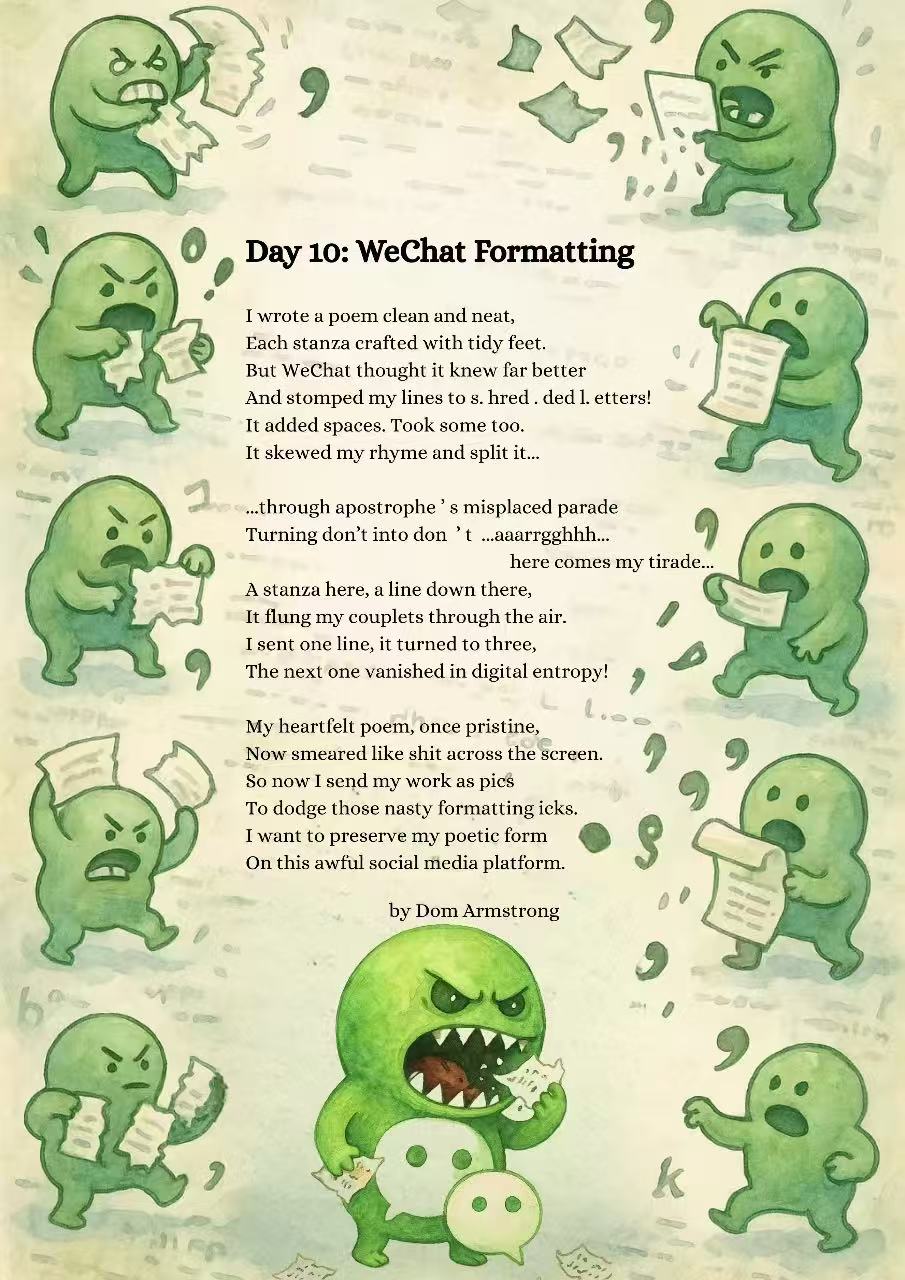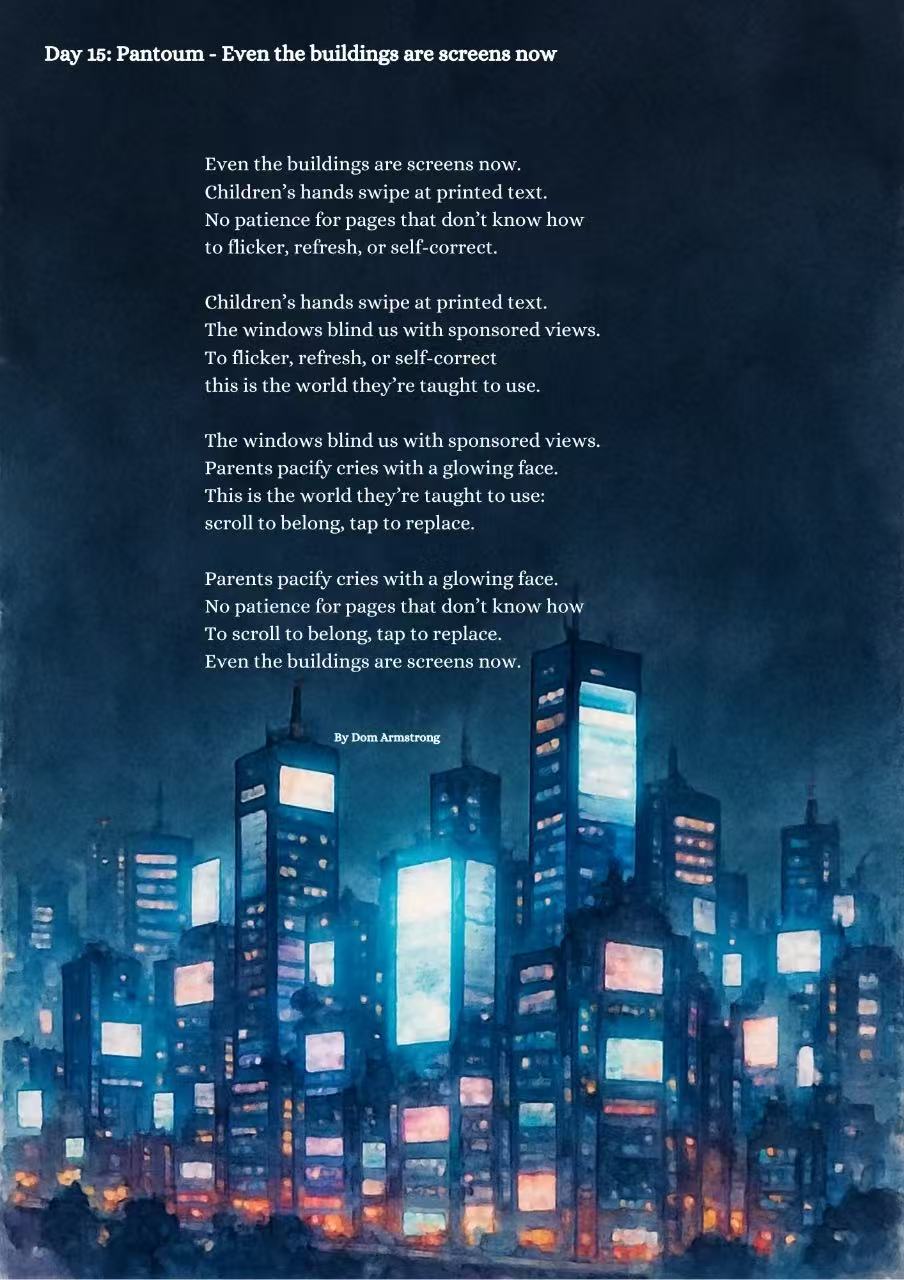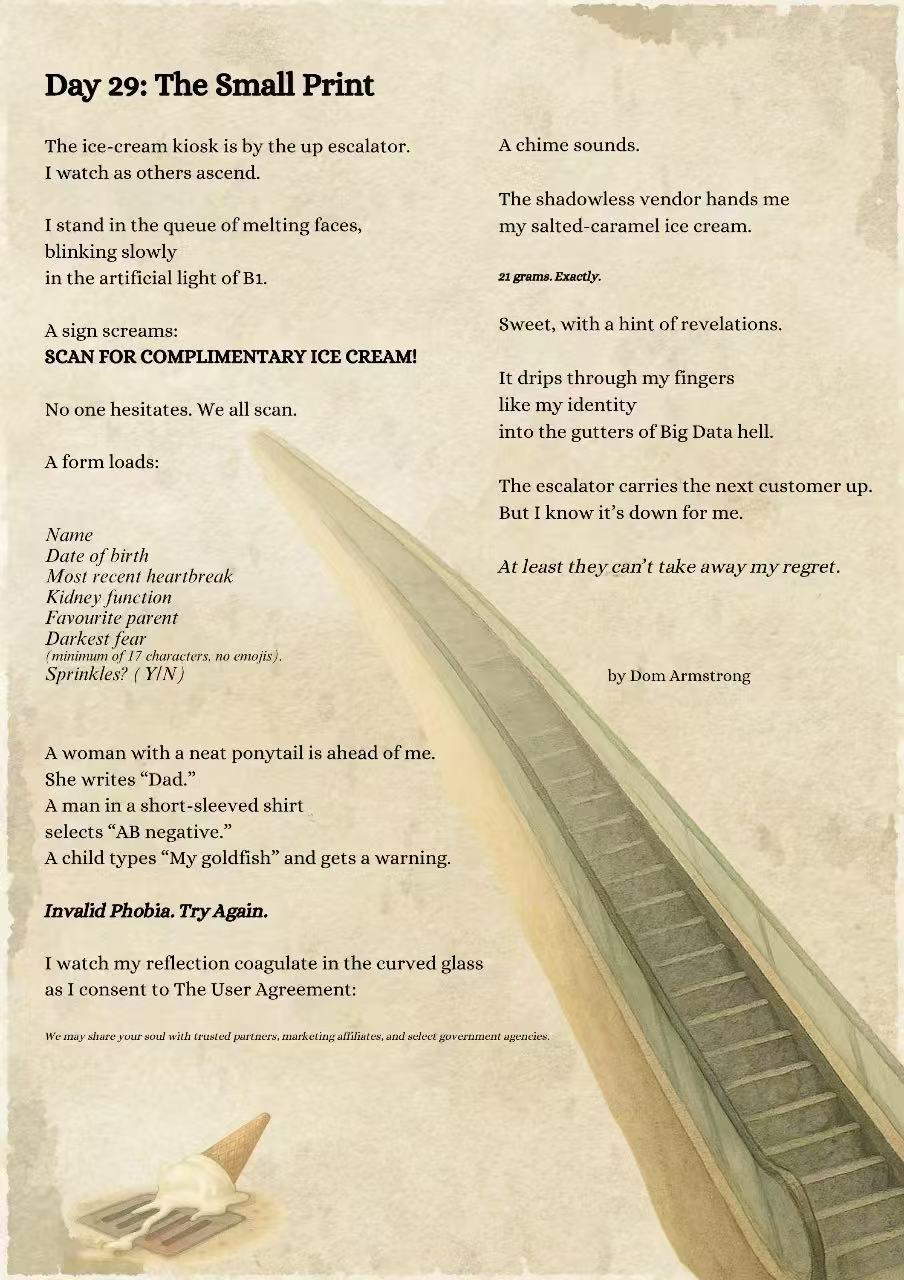A couple of weeks back, the below well-observed, comically relatable Didi Driver Stockholm Syndrome poem started doing the rounds in WeChat groups.

Highly amused, and given our lack of (read: non-existent) poetry coverage, we thought it would be an interesting break from the norm to track down the poet in question, Dom Armstrong, and pose him a few questions.
So we did just that...

Poet Dom Armstrong in front of Shanghai's Pearl Tower
Where are you from, and how did you come to be writing poetry in China?
I’m from Canterbury in the UK, a small Harry Potter-esque city teeming with winding medieval streets, hidden coffee shops, and rolling countryside all around.
I moved to China at the end of 2019, just in time for, well, that thing nobody likes to talk about. No, not Brexit. The other one. So I had a couple of months of pure culture shock before the world shut down.
These days, things are much brighter. I work in primary education at a British international school in Ningbo. It is endlessly rewarding.
I get to collaborate every day with sharp, creative people whose unfettered figurative language makes me laugh to my core: my pupils.
When did you first start writing poetry?
Poetry has been a long-term companion. My dad is a novelist and Dadaist poet, so I grew up surrounded by surreal octopuses, cosmic vegetables, and poems about teeth.
Over the years, I’ve had some poems commissioned for art columns, published in literary journals and the odd Christmas or thank you card.
Some unlucky café patrons may have even found one scribbled on a discarded napkin.
Any poets that you draw inspiration from?
I love the deadpan comic tones of Tim Key and Matthew Holness (as Garth Marenghi), but also the unsettling imagery and moral tension of Baudelaire’s work—the immiscible mixture of beauty and decay, elegance and unease.
I like poetry that brings a laugh, but also leaves the light bruise of a lingering thought. Most of my poems tend to start as a joke, then turn into something quietly unsettling, or vice versa.
Although I have always dabbled, I was not writing that consistently until I joined Inkwell. Now I can’t stop!

For those that don’t know, what is Inkwell?
It’s the largest non-profit creative writing group in Asia. My now-great-friend Dr. Ryan Thorpe founded the group in 2015 in Shanghai.
One thing I love about Inkwell is its inclusivity. Everyone from anywhere at any level of interest or ability is welcome to join. I’ve made friends and meaningful connections with other Inkwell members all over China.
Fiction, reading, nonfiction, poetry, screenwriting, and translation workshops; writing retreats; collaborations with theater groups like Bloomworks.
There is so much creativity and talent in this art collective!
How did you initially get involved?
A couple of years ago, I stumbled on a poster from Lori Fazzino inviting people to an Inkwell creative writing workshop.
I submitted my poem Gentle Waves in the Sea of Tranquillity, a modern ode to the city of Ningbo 宁波, which was generously published in the group’s literary journal, Visions, as well as Ningbo Focus magazine soon after.
Last year, when Lori moved away, I took over from her as Inkwell’s leader in Ningbo. Since then, I’ve thrown myself into the creative writing scene here in China—running workshops, judging competitions, participating in more events, hosting writing retreats, and generally doing my best to keep the creative fires burning.
Tell us about the 100 poems in 100 days challenge?
Ryan came up with the idea of writing a poem a day for 100 days. It’s a big commitment to writing, but keeps you writing and it keeps you honest.
It started with about a hundred of us. We share our daily poems with the group. We’re about a third of the way through now.

Seems quite the slog—how do you keep finding inspiration each day?
One of the joys of writing a poem every day, and sharing it in a group, is accepting that they can’t all be good. That takes off a lot of pressure, and sharing the journey with a supportive group is cathartic.
I find inspiration in daily life and observations. So far, I’ve written poems about everything from sacrifices to malfunctioning printers in office cults, to my dying houseplants as jilted lovers.
Sometimes, I’ll pick a poetic form, like a sonnet or pantoum, and let structure and rhyme scheme guide how I organize ideas. A bit like poetic Sudoku.
I’ve also collaborated on poems with some of the other poets in the group, which helps share the burden.
You also illustrate your own work. Do you work in any other mediums?
Yes, as an extra layer to Inkwell’s hundred days of poetry, I have committed to providing a design or piece of media to go alongside each one.
I create digital artwork using a mixture of my own drawings, Photoshop, and AI assets. For some of the poems, I have recorded voiceovers and shared them as videos, for example, Canon in D (for Despair).
Creating visual art is my way of switching off my brain while staying creative. It is meditative, and a lot less guilt-inducing than doom-scrolling. (Though, I do that too, of course.)
How do you feel about the warm reception of your Didi poem?
Honestly, I’m thrilled, and a little bit mystified.
At first, I was confused why many people were contacting me, since I had only posted the poem in our 100 days of poetry group and to a few close friends.
I’m not sure who exactly is sharing them around (possibly breaking our group rules) but it’s wonderful to know that it has brought people a smile.
There’s nothing better than adding a bit of levity to someone’s day, especially in this miserably hot weather!
Was there a particular moment that inspired you to start working on that poem?
The particular moment was when we were waiting at a red light and it turned green. Not moving, my taxi driver actually honked their horn at themselves angrily because they weren’t moving, then jumped in self-realization before speeding off.
I think the other experiences I describe in the poem are relatable to so many of us. Of course, the vast majority of drivers are superb, but we have all sat in the back of *that* rogue taxi driver’s car clutching our buttocks.
Have you written any more poems on the quirks of life in China?
Yes, I’ve written a few more, ranging from selling your soul to Big Data for a 2 RMB ice cream discount, to dealing with dishonest AC technicians and a robot burning out in 996 work culture.
With two months left of the poem-a-day challenge, I’m sure that I will write more.

Do you have a longer-term plan for these works?
I plan to group them into a small series, which I hope to get published somewhere (if you want to publish my poems, please get in touch!).
No matter what, they will always remain as a fond memory of my time in China and, if nothing else, I’ll have a stockpile of poems to embarrass my future self with at dinner parties… or, with my luck, forgotten on another café napkin for someone else to find.
Contact the Poet
You can reach Dom Armstrong on dominicjamesarmstrong@gmail.com or by scanning the QR code below:

[All images courtesy of Dom Armstrong]






















0 User Comments